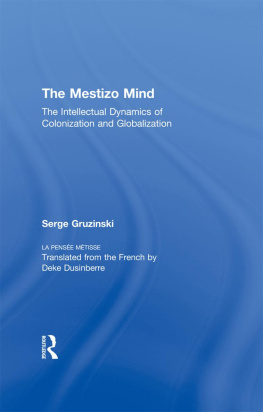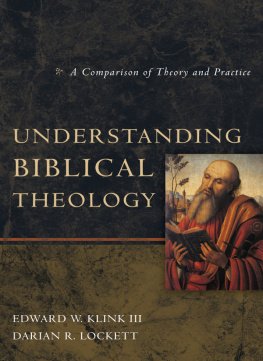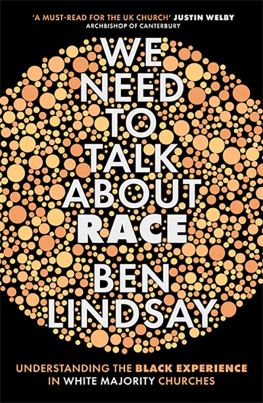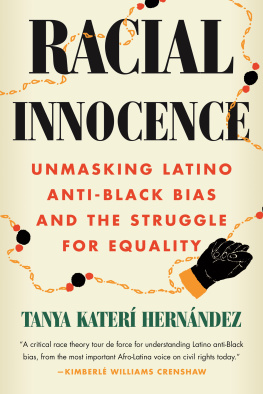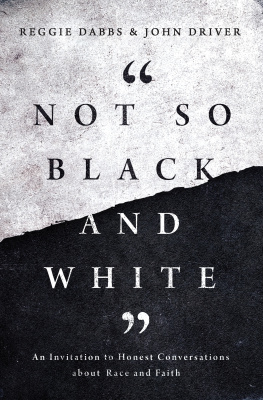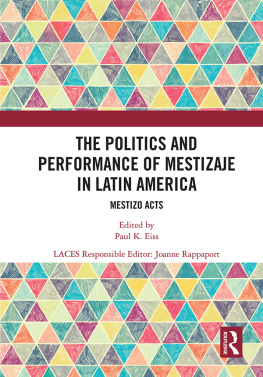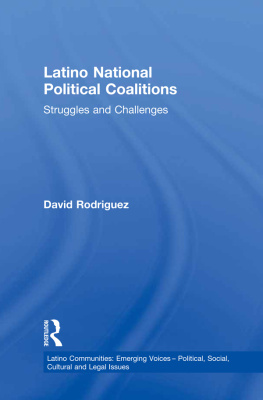Thank you for buying this ebook, published by NYU Press.
Sign up for our e-newsletters to receive information about forthcoming books, special discounts, and more!
Sign Up!
About NYU Press
A publisher of original scholarship since its founding in 1916, New York University Press Produces more than 100 new books each year, with a backlist of 3,000 titles in print. Working across the humanities and social sciences, NYU Press has award-winning lists in sociology, law, cultural and American studies, religion, American history, anthropology, politics, criminology, media and communication, literary studies, and psychology.
Racism and God-Talk
Racism and God-Talk
A Latino/a Perspective
Rubn Rosario Rodrguez

NEW YORK UNIVERSITY PRESS
New York and London
www.nyupress.org
2008 by New York University
All rights reserved
Library of Congress Cataloging-in-Publication Data
Rodrguez, Rubn Rosario.
Racism and God-talk : a Latino/a perspective / Ruben Rosario Rodrguez.
p. cm.
Includes bibliographical references (p. ) and index.
ISBN-13: 978-0-8147-7610-0 (cl : alk. paper)
ISBN-10: 0-8147-7610-8 (cl : alk. paper)
ISBN-13: 978-0-8147-7611-7 (pb : alk. paper)
ISBN-10: 0-8147-7611-6 (pb : alk. paper)
1. RacismReligious aspectsChristianity. 2. Race relationsReligious aspectsChristianity. 3. RacismNorth America. 4. Race relationsNorth America. 5. Th eologyLatin America. 6. Th eologyNorth America. I. Title.
BT734.2.R625 2008
277.0089dc22 2008004085
New York University Press books are printed on acid-free paper, and their binding materials are chosen for strength and durability.
Manufactured in the United States of America
c 10 9 8 7 6 5 4 3 2 1
p 10 9 8 7 6 5 4 3 2 1
For EAB
Contents
Acknowledgments
My thanks to the Department of Theological Studies at Saint Louis University for encouraging and supporting faculty research. The Louisville Institutes First Book Grant for Minority Scholars facilitated completion of this book; its generosity of resources and timeespecially the consultation with Institute staff and other grant winners in Louisville, Kentuckyproved invaluable to the writing process. I would also like to thank the Hispanic Theological Initiative for nurturing a community of Latino/a scholars and church people whose wisdom and encouragement midwifed this project and many others like it, as well as the many friends and colleagues at Princeton Theological Seminaryespecially Mark Taylor, Daniel Migliore, and Luis Rivera Pagnfor their enduring support. Special thanks to my department chair, Wayne Hellman, for accommodating a last-minute request for a one-year research sabbatical; to colleagues Brian Robinette, Belden Lane, and Dan Finucane for being such willing, open, and supportive sounding boards when I needed to think aloud or just plain vent; and to my graduate research assistants, Christine Baudin and Erick Moser, without whose help this project might never have gotten off the ground. Sections of appeared as Calvin or Calvinism: Reclaiming Reformed Theology for the Latin American Context, in Apuntes: Reflexiones teolgicas desde el margen hispano 23 (Winter 2004); chapter 4 was published in somewhat different form as Beyond Word and Sacrament: A Reformed Protestant Engagement of Guadalupan Devotion, in Journal of Ecumenical Studies 42, no. 2 (Spring 2007). It goes without saying, but I will say it anyway: completion of this book would not have been possible without advice and expert direction from Jennifer Hammer, my editor at New York University Press. Finally, special thanks to my wife, Dr. Elizabeth Blake, secret weapon and inhouse editor: words cannot express my gratitude for everything you are and everything you do.
Introduction
Nearly all the wisdom we possess, that is to say, true and sound wisdom, consists of two parts: the knowledge of God and of ourselves. But, while joined by many bonds, which one precedes and brings forth the other is not easy to discern.
John Calvin, Institutes of the Christian Religion
The future begins in the dream of what could and ought to be.
Virgilio Elizondo, The Future Is Mestizo
The Fundamental Contradiction
The apostle Paul writes, As many of you were baptized into Christ have clothed yourselves with Christ. There is no longer Jew or Greek, there is no longer slave or free, there is no longer male or female; for all of you are one in Christ Jesus (Gal. 3:2728, NRSV). Todays church, while recognizing that questions of ethnic identity in the ancient world differ greatly from modern conceptions of race, embraces Pauls eschatological vision of a community in which distinctions of race, class, and gender are transcended in Christ as a normative statement for understanding Christian identity. However, in the North American context, race consciousness plays a central role in the theological constructions of racially marginalized and oppressed communities. Given Pauls vision of Gods kingdom defined by the breakdown of all distinctions and relationships of dominationno longer Jew or Greek, slave or free, male or femalehow do we make sense of ethnic particularity within the churchs theological formulations?
The tendency toward group inclusion/exclusion at the intersection of two or more cultures has persisted throughout human history. Cultural identity, an intangible and fluid reality, often solidifies in response Over time slavery became almost synonymous with blackness as the practice of using physical traits to differentiate the conquerors from the conquered became an accepted and essential part of the cultural matrix. While the Christian church was often a willing accomplice in this history of domination and submission, many voices of resistance and transformation have arisen from within this tradition, such as those of Bartolom de Las Casas during the Spanish conquest of the Americas and the church-led abolitionist movement in the antebellum United States. Despite the advances of the civil rights movement, we continue to live in an age of racial disparity. As a religious body that embraces the breakdown of all relationships of domination in Gods kingdom, the church must draw upon its own traditions of resistance to effectively counter racism.
In an effort to support the churchs critical self-examination, this book explores the biblical and religious dimensions of North American racism while highlighting examples of resistance within the Christian religious tradition. The Biblea complex collection of documents from various sources reflecting a multiplicity of social, historical, and cultural locationslends itself to many, often contradictory, interpretations. At no point in church history has this been more evident than in the antebellum United States when abolitionists in the North read and interpreted Galatians 3:129 as a manifesto for human freedom while Southern theologians cited Pauls letter to Philemon in defense of the Fugitive Slave Law of 1850. If political historians have interpreted the Civil War as the nations first major constitutional crisis (arising from the fundamental contradiction of the three-fifths compromise), then these conflicting interpretations of the Bible constitute the young nations enduring moral crisis. In 1852 Frederick Douglass exposed the nations religious hypocrisy in his Fourth of July address:
Americans! your republican politics, not less than your republican religion, are flagrantly inconsistent. You boast of your love of liberty, your superior civilization, and your pure Christianity, while the whole political power of the nation (as embodied in the two great political parties), is solemnly pledged to support and perpetuate the enslavement of three million of your countrymen.
Next page

